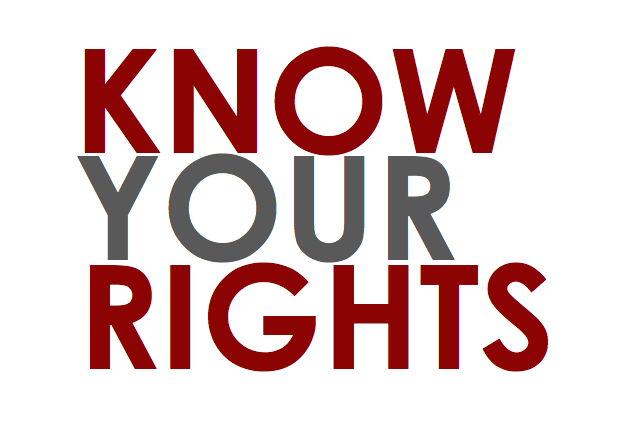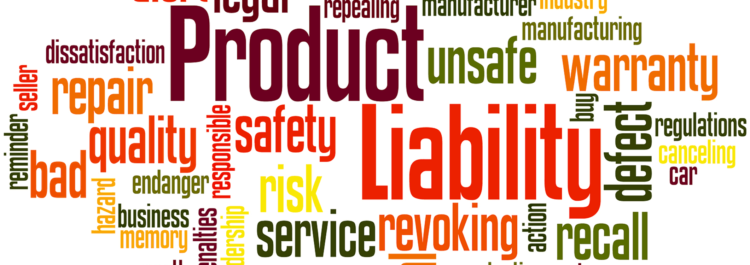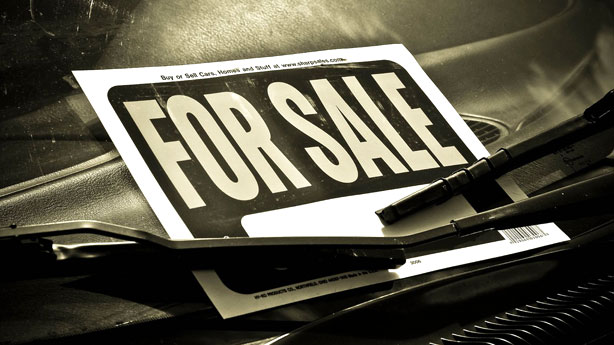
What Are Your Rights When Buying A Vehicle in Canada?
Buying a vehicle in Canada involves signing a contract with a dealership or a private seller. The contract you sign is legally binding and in almost every instance the other party has no obligation to let you out of it.
The best way to avoid problems is through research, wise shopping, and a thorough review of your contract before you sign. Legislation varies greatly between provinces, so you’ll need to know what laws apply to your region.
Cooling Off Period
Buyers often assume that they have time to consider their purchase after they sign. They believe they have a “cooling off” period which allows them to return the vehicle if they are not satisfied. This usually isn’t the case. A 2017 Motor Vehicle Industry Council survey found only 13 per cent of respondents knew vehicle purchases are non-refundable.
While many provinces do have cooling off periods, they don’t apply to vehicles. Typically, sales are final and you can’t get a refund or return the vehicle unless the contract stipulates a particular condition. For instance, you might insist on an inspection with an independent mechanic beforehand. If the vehicle fails inspection, your contract can specify cancellation and deposit refund.
Some provinces do allow you to legally cancel a sale within 90 days if the dealer fails to disclose a key fact. For instance, if they did not tell you that the vehicle was a rental or taxi, someone altered the mileage, or insurance wrote the vehicle off and someone rebuilt it, your province may permit a cancellation.
As far as getting your deposit back, you may be able to get a refund, less any costs the dealership paid. Some dealers will do this to maintain their reputation, but they aren’t normally obligated to do so.
Legislation
Know you rights within your province and review your contract before you sign. Provincial legislation varies greatly and every province has their own organization for handling consumer complaints.
The federal consumer information website is a good starting point. It offers links to each province’s appropriate motor vehicle sales website. They offer consumer resources such as buying tips, information videos, and they may help you resolve your dispute if you buy through a dealer.
Provincial legislation normally covers common areas such as vehicle disclosure problems, misrepresentation in advertising, cancellation rights, and in some provinces, access to a compensation fund for financial loss.
New Vehicle Purchase
If you’re buying a new vehicle, research the dealership and comparison shop. High-pressure sales tactics are common, so you need to know who you’re dealing with, which vehicle(s) suit your lifestyle and budget, and an appropriate price to begin negotiations.
The Automobile Protection Association provides members with the list prices dealerships pay for new vehicles. Consumer Reports and Protégez-Vous (French) also offer excellent vehicle information.
Compare prices for your region in publications such as Auto Trader and check the going price in the Canadian Red Book Vehicle Valuation Guide or the Canadian Black Book.
What Can You Do?
If you have a problem with your new vehicle, you’ll need to start with the dealership. Keep copies of all correspondence and note the date and person you talk to on the telephone or in-person, along with details of the conversation.
Some problems are simply a matter of poor communication, and easily remedied. Others may take persistence and patience. Of course, a dealership cannot resolve all problems either.

Manufacturing or Mechanical Defects
If your issue is with a manufacturing or mechanical defect, you may need to use the Canadian Motor Vehicle Arbitration Plan (CAMVAP).
When the manufacturer or a dealership is unable to repair the vehicle after it has been in the repair shop many times (usually three or more) most people refer to them as “lemons”.
Canada does not have a federal lemon law that forces the manufacturer to buy back your vehicle like in the U.S. Ontario, Manitoba and Nova Scotia do have some protection, but CAMVAP is your best bet otherwise. They provide free arbitration for car owners or lessees when they have a vehicle with manufacturer defects.
About 90 percent of new vehicles sold or leased in Canada within the past four years qualify under the plan. However, BMW, Suzuki, or Mitsubishi are not part of the plan. You must deal with them directly.
If you choose to use CAMVAP, you agree to the decision made by an independent arbitrator. It’s usually faster and less costly than court. If the arbitrator rules in your favour, it’s a binding decision. They may decide the manufacturer must buy back, repair, or pay you for your expenses regarding the vehicle. You cannot take the matter to court later once they decide.
Not everyone wins in arbitration either. In 2013, CAMVAP arbitrated 238 cases. The manufacturer had to repair 49 vehicles, bought back 81, and paid the consumer for repairs on 10 claims. In another 75 cases, the manufacturer was not liable. Many cases were not settled at all.
However, if the arbitrator rules in your favor and the manufacturer does not do what the arbitrator requires, CAMVAP provides the consumer with financial assistance to seek enforcement through the courts, including paying lawyers’ fees.
If you cannot resolve your complaint, you may want to fix the vehicle at your own expense and use Small Claims Court to recover your costs. The limit for Small Claims Court is $25,000.
You do not need a lawyer to file a claim in small claims court, but you may want legal advice. If you disagree with the facts the dealer presents regarding your vehicle you’ll need testimony from an independent mechanic to refute it.
Safety-related issues may fall under Transport Canada’s regulations. You can file a complaint if a defect originated at the design, manufacturing or assembly stage and directly endangers the safety of a driver, passenger, the occupants of other vehicles, pedestrians, cyclists and other road users.
Problems regarding misrepresentation in advertising are usually handled through your area’s consumer affairs office. As mentioned earlier, Ontario, Manitoba and Nova Scotia have specific vehicle legislation, including advertising standards.
For instance, in Ontario dealers must offer one-price advertising including taxes, unless otherwise stated. They must also state whether the vehicle is new or used, reveal the vehicle history, and specify the warranty length.
Used Vehicle Purchase
According to Desrosiers Automotive Consultants, Canadians bought 2.8 million used vehicles in 2015. Unfortunately, most private motor vehicle sales don’t offer the protection of a licensed dealership certified pre-owned warranty or consumer protection legislation either.
For more information about purchasing a used vehicle, read Top 10 Tips To Find The Right Used Car.

Private Sale
Research is your best protection before you sign a contract. A vehicle history report through CarFax may show you whether the vehicle was in an accident, stolen, or has a lien on it. You should also have a mechanic do a pre-purchase inspection to spot potential repairs or replacements.
You’ll also want proof of the seller’s identity. Check their identity matches what’s on the official registration form. Also check the make, model, year, license plate and vehicle identification number (VIN) against the registration.
The average mileage on a vehicle is about 20,000 kilometers a year. If the mileage seems extraordinarily low, you may want to avoid it. Don’t pay for the vehicle upfront and don’t wire transfer funds either. Pay a deposit if you must, but reserve the balance for when you receive the vehicle.
Some provinces require private sellers provide a Vehicle Information Package (UVIP) to finalize a sale. It includes the vehicle registration history and vehicle identification number (VIN). The seller must also record the mileage on the odometer and list any liens. They must also state the fair market value of the vehicle for tax purposes. This article offers an excellent provincial and territorial summary with links to your jurisdiction.
It really is a matter of “buyer beware” when it comes to used vehicles bought through a private sale. Consumer laws don’t cover the transaction unless the seller willfully withholds important information. Even then, the only recourse is to pursue the matter through small claims court. If a seller omits or disguises a vehicle was in an accident or they set back the odometer, you may have recourse.
Dealer Sale
Always check out the dealer’s background and reputation before you buy. A reputable dealer must have a provincial dealer license to legally sell vehicles in Canada. The links in the federal consumer information website point you to the appropriate governing bodies to check their license.
If you’re looking for reassurance when you buy used, most manufacturers offer a certified pre-owned program through dealerships too. Generally, they offer an inspection and manufacturer’s warranty that rivals that of a new vehicle. Some offer additional perks such as an n exchange policy if you dislike the vehicle within a certain amount of time or mileage or free scheduled maintenance.
Certified pre-owned vehicles are low mileage, inspected and reconditioned, but more expensive. They do self-certify their vehicles, but guarantee they meet manufacturer standards. Most warranties are nationwide at manufacturer dealerships too and often times you can transfer them to another owner if you sell.
Whether you decide to buy new or used, your best line of defense is what you do before you buy. While some cars do have problems straight from the manufacturer, many times you can avoid problems by thoroughly investigating makes and models beforehand.
Nonetheless, some people do everything correctly and still face problems. Stay calm, keep meticulous records, and be persistent. Use the resources mentioned here and you’re more likely to reach a satisfactory resolution.
Sometimes, the vehicle purchase process can be overwhelming and without proper due diligence can leave you with problems. Creditline ONE is an all-in-one solution so that you don’t have to worry about the headaches. Our agents are experts on your side and we can make sure that the due diligence is handled for you. If you’d like to know more, feel free to contact us below.
If you enjoyed this article or found it informative, feel free to check out our other blogs here.
